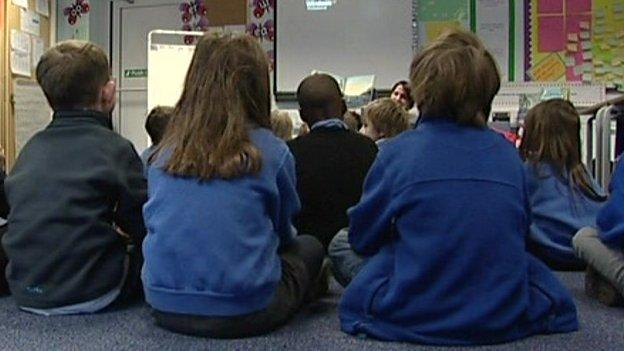Free schools, dark whispers and an adviser hits back
- Published
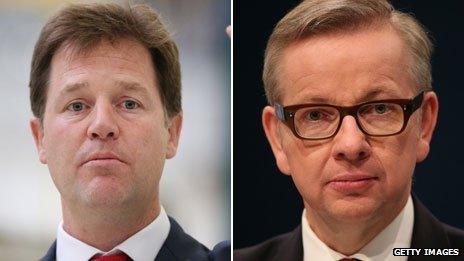
Ask what this row over free schools is about and you'll get three different answers.
Nominally, it's about whether Education Secretary Michael Gove has "raided" the basic needs budget for primary school places to prop up funding for free schools.
That was the accusation from his Labour shadow, Tristram Hunt, who posed an urgent question to the secretary of state this afternoon - after Lib Dems had briefed last week that there was a £400m black hole.
Labour are picking a fight with the Tories.
But they're also keen to point out they have little sympathy for the Lib Dems, who signed up to the whole free schools agenda so willingly in government.
'Personality not policy'
One senior Labour figure described Nick Clegg to me as "a showboating, vainglorious lunatic", and went on to say "a lot of their critique on free schools is correct, but, hey, they voted for it".
Talk to Lib Dems, however, and it becomes clear the whole row is more about personality than policy.
They point to the shadowy figure of Dominic Cummings, Michael Gove's former adviser, and believe he is to blame for briefings to the media against Nick Clegg.
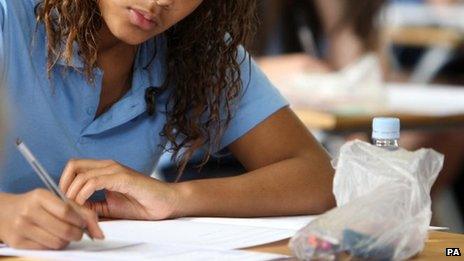
Free schools operate independently from local authorities
One senior Lib Dem told me there's lots of real anger around Mr Cummings and particularly his attack on free school meals.
Nick Clegg's policy on free lunches for the under-7s was briefed against as being ill-thought out and uncosted.
"That's total nonsense," says the Treasury.
Another Lib Dem told me that Mr Cummings had "waged war on the deputy prime minister - a one-man war of email exchanges" and that now he was no longer in Mr Gove's employ, he had "gone rogue".
'Behaving disgracefully'
When I talked to Dominic Cummings, he told me: "In government I certainly did stop a great deal of Clegg's interference in school policy.
"He would routinely call demanding a hundred million pounds for an unknown gimmick in a speech the next week.
"We told him to get stuffed."
Mr Cummings added: "More importantly, we stopped him corrupting the free school process and setting exam grades by improper interference, which particularly infuriated him.
"We routinely blocked things - ignoring the Whitehall rules and refusing to submit things to his cabinet committee in order to avoid him using his veto as a blackmail weapon. Understandably he felt we cheated him.
"We regarded him as behaving disgracefully and, yes, I can see from Clegg's point of view he became infuriated, but nothing would have happened if we hadn't locked Clegg out of school reform."
One of the Lib Dems told me he believed his party had retaliated to briefings against Mr Clegg with the leaks, in the spirit of protecting their leader, but that it had become an unedifying and horribly public Whitehall knife fight, which he believed was not in either party's interest.
'Win-win'
He said the Lib Dems had to be careful they didn't "blow the whole thing up" as they were not particularly against free schools as a policy aim, and their approach could start to seem messy.
And then of course, there's the small matter of the upcoming elections.
There is plenty of evidence that attacking Michael Gove is a win-win for the Lib Dems.
Polling last week from YouGov suggests that he is far and away the senior politician least liked by Lib Dem voters - they are more than twice as likely as the rest of the electorate to dislike him.
Two weeks before a set of elections in which some observers suggest they could lose every one of their MEPs, the Lib Dems have little to lose and everything to gain by attacking such an unpopular figure, and, in what has become somewhat of a coalition ritual before elections, differentiating themselves from the Conservatives.
So the big question - to come full circle - is has Michael Gove been over-spending, and has he been told by the Treasury to "rein it in"?
'Degree of scrutiny'
A senior government source has told me there is a "good degree of scrutiny" of the free schools budget, but that it was partly in proportion to the greater amounts of money being spent - not unusual for any capital spending project.
Is money being borrowed from the basic needs budget? That, I'm told, is an "over-simplification".
But when you ask if there is now more pressure on primary school places, well that question goes quietly unanswered.
"From what I understand, we can meet those challenges," the source tells me.
Which is not, to my ears, a "no".
- Published12 May 2014
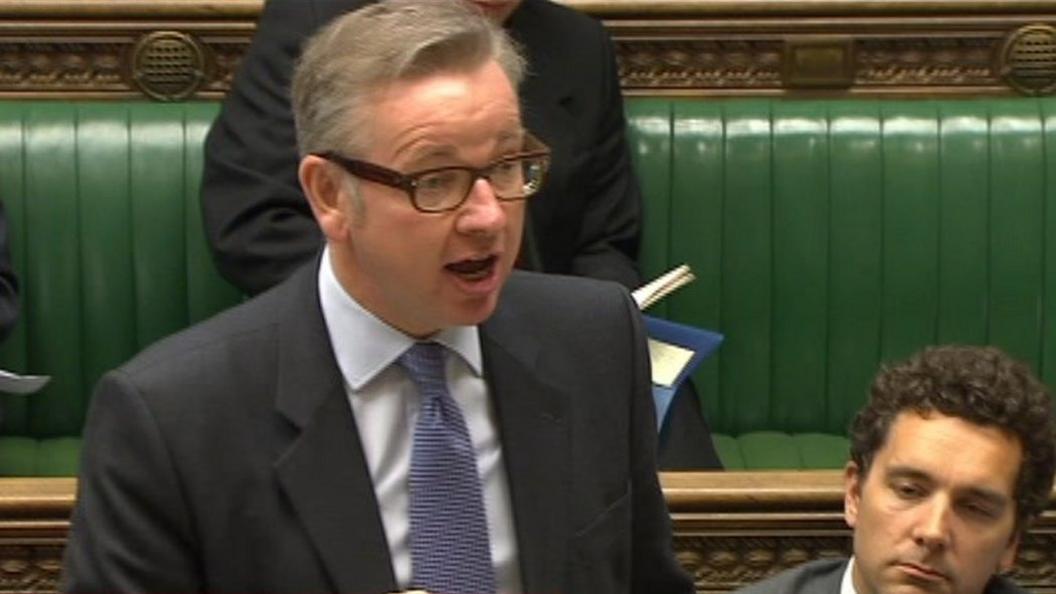
- Published9 May 2014
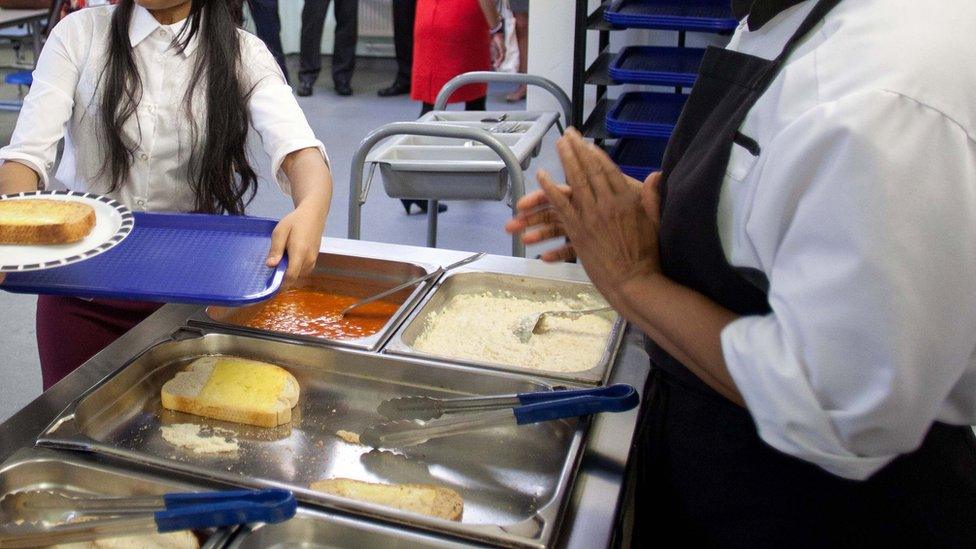
- Published9 March 2015
